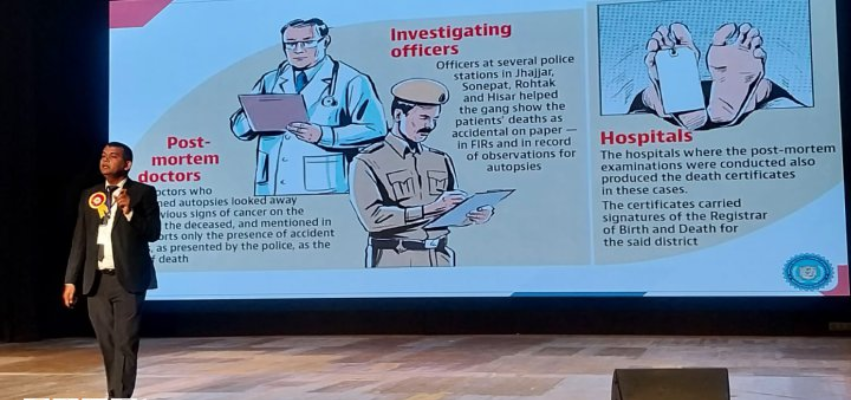
Health Force 2025: How Forensic Science is Revolutionizing Patient Care
As I walked through the halls of Teerthanker Mahaveer University during Health Force 2025 (February 27-28), one thought kept recurring: we're witnessing a revolution in how forensic science intersects with patient care.
Serving as both jury member and speaker at this international conference, I gained invaluable insights about how evidence-based practices are transforming health sciences - and why forensic expertise matters more than ever in healthcare.
The Powerful Intersection of Forensics and Healthcare
Most people don't immediately connect forensic science with patient care, but this conference brilliantly highlighted their synergy. Here's what stood out:
Forensic Pathology's Role in Medical Diagnosis
During my jury evaluations, I reviewed remarkable research on:
- How post-mortem findings can inform treatment for living patients
- The growing importance of forensic toxicology in medication management
- Using forensic imaging techniques to improve diagnostic accuracy
One presentation showed how analyzing patterns in autopsy reports helped identify previously overlooked symptoms of a rare cardiac condition - now enabling earlier diagnosis in clinical settings.
My Speaking Session: Forensic Science as a Quality Control Tool
In my address, I emphasized three critical applications:
- Medicolegal documentation standards that protect both patients and practitioners
- Forensic nursing techniques for more accurate injury documentation
- Trace evidence analysis methods adapted for hospital-acquired infection tracking
The lively Q&A session that followed proved how hungry healthcare professionals are for these cross-disciplinary insights.
Breakthroughs in Evidence-Based Practice
The conference showcased innovative approaches to:
- Data-driven treatment protocols using forensic case analysis
- Standardizing medical record-keeping based on forensic documentation principles
- New nursing curricula incorporating forensic medicine basics
Why This Matters for Future Healthcare
Having participated in numerous forensic conferences, Health Force 2025 stood out for its practical focus. Here's what excites me most about this convergence:
Preventing Medical Errors
Forensic methods help:
- Identify root causes of treatment complications
- Establish clearer chains of custody for medications
- Improve documentation to reduce diagnostic mistakes
Enhancing Patient Safety
Techniques adapted from crime scene investigation are now being used to:
- Track hospital-acquired infections more accurately
- Document patient injuries more thoroughly
- Analyze patterns in adverse events
Creating New Specializations
The conference highlighted emerging roles like:
- Forensic nurses specializing in abuse cases
- Clinical forensic physicians bridging hospitals and legal systems
- Medical error investigators using forensic approaches
Practical Takeaways for Healthcare Professionals
For clinicians and administrators looking to implement these ideas, I recommend starting with:
- Cross-training medical staff in basic forensic documentation
- Collaborating with forensic experts on complex cases
- Implementing forensic-inspired tracking systems for medication and specimens
The Road Ahead
As I concluded my participation, several attendees asked me: "How can we bring more forensic science into routine healthcare?" My answer:
Advocate for forensic medicine modules in medical/nursing curricula
Develop hospital-based forensic consultation services
Support research at the forensics-healthcare intersection
The enthusiasm I witnessed at Health Force 2025 convinces me we're at the dawn of a new era in patient care - one where forensic rigor meets clinical compassion to create better outcomes.
Have you encountered forensic methods in healthcare settings? I'd love to hear your experiences - share them in the comments!

